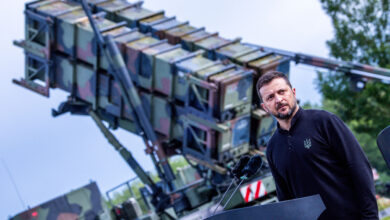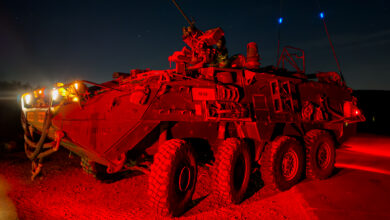The Canadian government has announced investment to modernize its military infrastructure in Edmonton.
Under the 45.3-million Canadian dollar ($33.3 million) project, Ottawa will upgrade facilities at the 3 Canadian Division Support Base, which covers about 25.5 square kilometers (9.8 square miles) across Sturgeon County.
The installation is responsible for administrative, personnel, training area, infrastructure, and range support for more than 300 Canadian Armed Forces buildings in Edmonton, Yellowknife, and Whitehorse.
Work for the effort was awarded to Richmond-based engineering company Ameresco Inc. The project is expected to maintain 125 jobs during the construction period.
Ottawa wrote that most facilities will remain fully operational during the upgrades, with no impact on defense tasks.
‘Energy-Efficient’ Military Facilities
The project will be carried out under the energy performance contract (EPC) framework to establish a “cleaner, more modern infrastructure” for warfighters while saving taxpayer funds.
Partners selected for EPC programs will finance retrofit projects with guaranteed energy savings and receive limited upfront costs from the government. Energy costs set aside will be used for full payment to the company over a 5 to 15-year period.
Ottawa has implemented EPC agreements since 2015 at 15 sites, saving 20 million Canadian dollars ($14.7 million) of energy costs and more than 80,000 tons of emissions per year.
“The Canadian Armed Forces deserve modern, clean, and energy-efficient infrastructure that gets the job done,” Canadian Defence Minister Bill Blair stated.
“We will continue to make investments like this, ensuring that our personnel have the facilities that they need to train so that they are always ready to protect Canadians.”
Road to Net Zero
For the Edmonton construction, Ottawa expects the first energy savings and emissions reductions by the end of 2024, with full effect by 2026, during which all retrofits are scheduled for completion.
“The Canadian Armed Forces of Edmonton have always answered the call of service – from training Ukraine’s heroes, to supporting Canadians in need during forest fires,” Employment, Workforce Development and Official Languages Minister Randy Boissonnault said.
“As our strategies adapt to meet the demands of our ever-changing environment, this means upgrading our base infrastructure to reduce emissions and support our green industry. This investment is one step towards improving our training facilities and making them resilient for a net zero future.”












